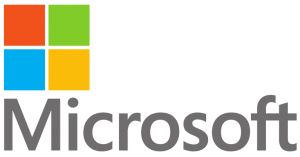It’s not news that millennials have become the most influential generation when it comes to evolving the workplace. In fact, it is estimated that they will make up 75 percent of the workforce in less than a decade. Millennials bring a whole new set of attitudes and expectations for employers and this is affecting massive change in the workplace.
 Millennials are the first generation to grow up with technology playing an integral role in their lives, with most having no memory of life before the Internet. As a result, 93 percent of millennials expect up-to-date technology in the workplace and believe it is one of the most important aspects of an office.
Millennials are the first generation to grow up with technology playing an integral role in their lives, with most having no memory of life before the Internet. As a result, 93 percent of millennials expect up-to-date technology in the workplace and believe it is one of the most important aspects of an office.
What millennials expect from their employers is also much different than previous generations. They want flexible work environments with employers that care about their professional and personal needs. Employers are beginning to cater to these needs with voluntary benefits and benefits package education.
Voluntary benefits such as pet insurance, extended leave and financial counseling are becoming more common. The way benefits are presented to employees is also changing to get millennials more involved. Digital communication and offering engagement is key to millennial involvement. This means that benefits are often communicated via email or text message rather than a paper on a bulletin board. Additionally, employers are engaging millennials with surveys or offering them positions on committees so they work with HR and communicate what is most important to them.
Employers are also starting to be more flexible when it comes to where and when millennials work. Giving employees the option to customize their work schedule boosts productivity and satisfaction in a position. An employee can choose to take a nap after lunch to replenish their energy or take a break to spend time with their children after school. In fact, it is predicted that the 9-5 schedule will disappear by 2030.
Next Step Academy already operates on a flex schedule, with many of our employees working remotely rather than from an office. The flexibility of when and where we work allows our employees to work around college classes and busy family schedules.
As the younger end of the millennial generation hits the workforce, more changes and adaptations to benefits policies and workplace culture can be expected. The ability to appeal to this generation is going to be crucial to control costs and increase the utilization and engagement of millennial employees.







